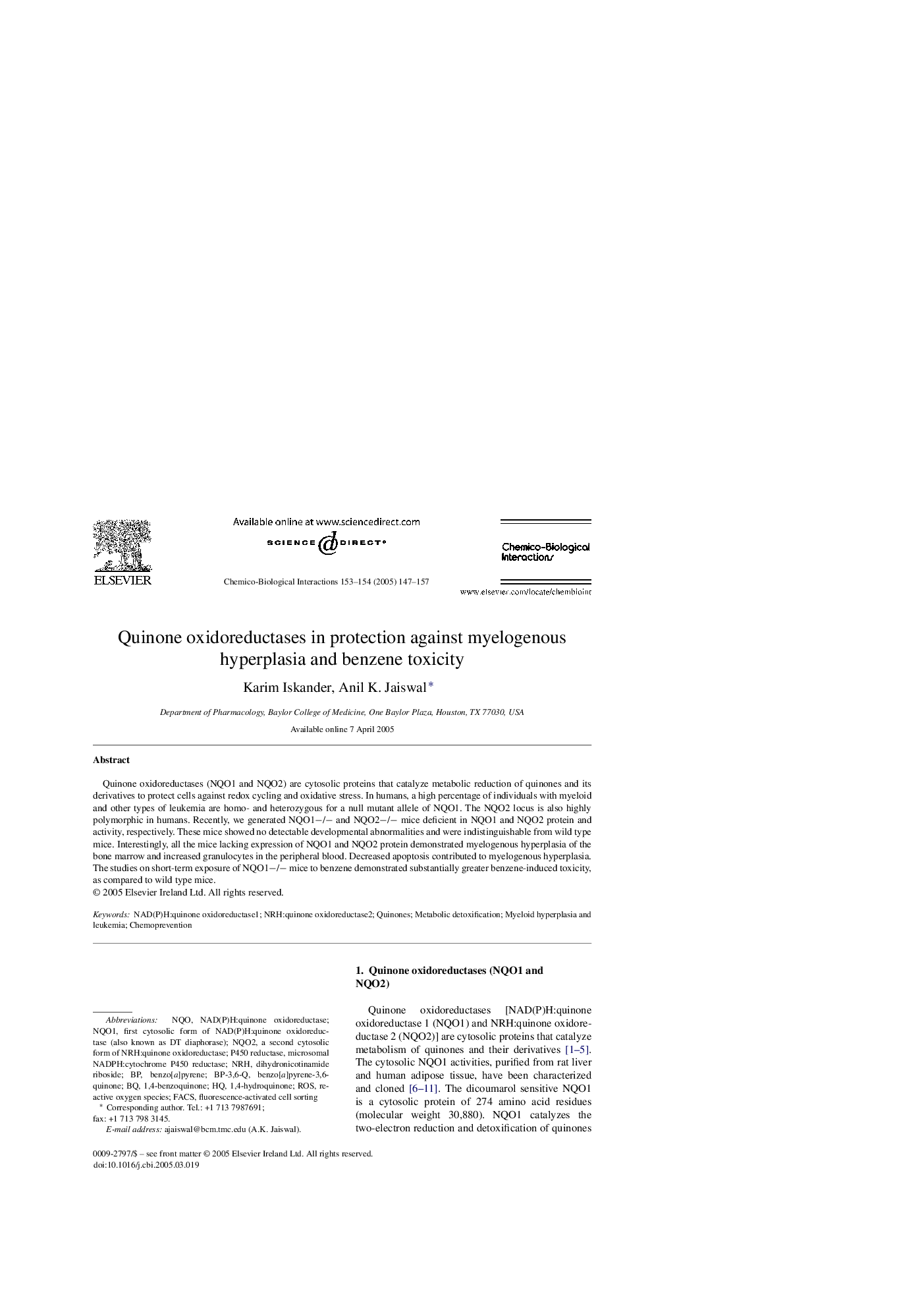| Article ID | Journal | Published Year | Pages | File Type |
|---|---|---|---|---|
| 9028598 | Chemico-Biological Interactions | 2005 | 11 Pages |
Abstract
Quinone oxidoreductases (NQO1 and NQO2) are cytosolic proteins that catalyze metabolic reduction of quinones and its derivatives to protect cells against redox cycling and oxidative stress. In humans, a high percentage of individuals with myeloid and other types of leukemia are homo- and heterozygous for a null mutant allele of NQO1. The NQO2 locus is also highly polymorphic in humans. Recently, we generated NQO1â/â and NQO2â/â mice deficient in NQO1 and NQO2 protein and activity, respectively. These mice showed no detectable developmental abnormalities and were indistinguishable from wild type mice. Interestingly, all the mice lacking expression of NQO1 and NQO2 protein demonstrated myelogenous hyperplasia of the bone marrow and increased granulocytes in the peripheral blood. Decreased apoptosis contributed to myelogenous hyperplasia. The studies on short-term exposure of NQO1â/â mice to benzene demonstrated substantially greater benzene-induced toxicity, as compared to wild type mice.
Keywords
Related Topics
Life Sciences
Environmental Science
Health, Toxicology and Mutagenesis
Authors
Karim Iskander, Anil K. Jaiswal,
